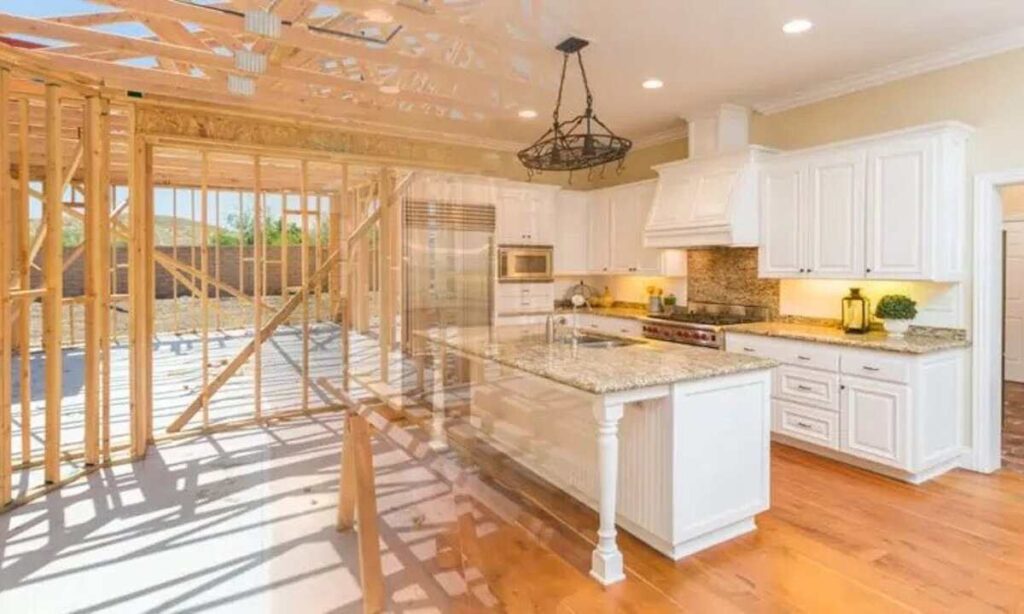In Houston’s vibrant real estate landscape, the decision to invest in a new construction home or an existing property is a pivotal choice for prospective homeowners. Each option comes with its own set of advantages and considerations. New construction homes offer modern amenities and customization but often come with a higher price tag and potential delays. In contrast, existing homes boast established neighborhoods and immediate occupancy but may require renovations. Understanding the nuances between these choices, alongside Houston’s specific housing market trends and financial implications, can empower homebuyers to navigate this crucial decision confidently, aligning their preferences with the ideal property investment. Texas Rent 2 Own aims to guide individuals in making a wise decision.
Pros and Cons of New Construction Homes
Advantages of New Construction Homes
Newly constructed homes bring a plethora of advantages that resonate with modern homebuyers. Firstly, they offer an unmatched canvas for personalization, presenting opportunities to tailor the house to individual tastes and preferences. From floor plans to fixtures, buyers can often have a say in the design process, ensuring their dream home becomes a reality. Moreover, new construction homes are at the forefront of energy efficiency, equipped with advanced technologies, such as smart thermostats and energy-saving appliances, ensuring reduced utility costs over time. Additionally, these homes typically come with warranties covering various structural elements and appliances, providing peace of mind to homeowners. The reduced need for immediate maintenance is also a considerable benefit, allowing residents to enjoy their new space without the hassle of immediate repairs or renovations, enhancing the overall comfort and satisfaction of homeownership.
Furthermore, engaging a proficient real estate attorney can substantially amplify the advantages of investing in newly constructed homes. These legal experts specialize in navigating intricate real estate transactions, offering invaluable insights and protection for buyers. By scrutinizing contracts and ensuring compliance with local regulations, a real estate attorney mitigates potential risks and safeguards the buyer’s interests throughout the home purchase process. Particularly in the case of newly built properties, an attorney can meticulously review warranties, construction agreements, and any legal intricacies specific to new developments, ensuring buyers fully comprehend their rights and any potential liabilities. Their expertise acts as a crucial shield, providing clarity, legal protection, and peace of mind to homebuyers venturing into the realm of newly constructed homes.
Disadvantages of New Construction Homes
Despite their allure, new construction homes come with certain drawbacks that warrant consideration. Foremost among these is the higher initial cost associated with newly built properties. The premium price tag often reflects the incorporation of modern amenities and the customizable nature of these homes. Additionally, potential construction delays pose a significant concern. Unforeseen issues or weather-related setbacks can extend the expected completion timeline, potentially impacting the move-in schedule for buyers.
Moreover, the limited availability of new construction in established neighborhoods might be a drawback for those seeking a specific location or a well-established community ambiance. The scarcity of available land in such areas can restrict the options for those desiring proximity to certain amenities or preferring the charm of mature neighborhoods. While new construction homes offer numerous advantages, these drawbacks underscore the importance of weighing personal preferences, timelines, and location priorities when considering this housing option.

Pros and Cons of Existing Homes
Advantages of Existing Homes
Existing homes present a distinct set of advantages appealing to many homebuyers. One of the primary draws is the charm and character found in established neighborhoods. These areas often boast mature landscaping, tree-lined streets, and a sense of community that has evolved over time, offering a unique ambiance that new developments may lack. Furthermore, existing homes frequently come with the potential for lower initial costs compared to new construction. This affordability, coupled with the possibility of negotiation based on market conditions or property condition, can make them financially appealing.
Another notable advantage is the quicker move-in process inherent to existing homes. Unlike waiting for a new build to be completed, buyers can expedite their relocation and settle in promptly. This aspect can be especially advantageous for those with time-sensitive housing needs or those seeking immediate occupancy without the extended construction period. The blend of established charm, potential cost savings, and swift move-in possibilities make existing homes an attractive option for discerning buyers.
Moreover, the presence of a skilled mortgage broker can significantly enhance the appeal of existing homes for potential buyers in Houston. These professionals possess in-depth knowledge of the local market and lending institutions, assisting buyers in securing favorable loan terms and navigating complex financial aspects. Leveraging their expertise, a mortgage broker in Houston can provide invaluable guidance, helping homebuyers to explore various financing options, understand interest rates, and expedite the mortgage approval process. Their assistance can streamline the home buying journey, enabling buyers to make well-informed financial decisions while purchasing existing homes that offer charm, cost-efficiency, and the potential for negotiation.
Disadvantages of Existing Homes
Existing homes, despite their appeal, often come with a set of considerations that potential buyers should bear in mind. One significant factor is the potential need for renovations or updates. These homes might not align with modern design trends or personal preferences, necessitating additional investments to modify or upgrade aspects like layout, fixtures, or aesthetics.
Moreover, compared to newly constructed homes, existing properties may exhibit less energy efficiency due to outdated features. Older appliances, windows, and insulation could lead to higher utility bills and a greater environmental footprint without upgrades.
Additionally, the passage of time may bring about maintenance issues in existing homes. Aging systems, such as plumbing or electrical components, might require attention, potentially resulting in unexpected repair costs. While the charm of an established property is undeniable, these considerations highlight the importance of thorough inspections and potential budgetary allocations for renovations or maintenance when opting for an existing home.
Considerations Specific to Houston
Houston’s dynamic housing market showcases unique elements crucial for homebuyers to contemplate. Firstly, understanding the trends within this market is essential. Houston has experienced fluctuations in home prices, inventory levels, and buyer preferences over recent years. Keeping abreast of these trends empowers buyers to make informed decisions based on prevailing conditions.
The impact of Houston’s weather and climate on home types is a vital consideration. With the city’s subtropical climate characterized by hot, humid summers and mild winters, energy efficiency becomes paramount. New construction homes, often built with energy-saving features, may better withstand the climate’s demands, offering improved comfort and cost savings.
Neighborhood preferences and availability play a pivotal role in Houston’s diverse landscape. The city boasts various neighborhoods, each with its own character and amenities. Some may prefer established communities with tree-lined streets and historical charm, while others might seek newer developments with modern conveniences. Understanding the availability of these preferences within different price ranges and locations is crucial for aligning lifestyle expectations with housing options.
Navigating Houston’s housing market necessitates a nuanced understanding of its trends, the impact of weather on homes, and the diverse neighborhood offerings. These considerations empower buyers to find properties that not only fit their immediate needs but also align with their long-term aspirations within this vibrant Texan metropolis.

Financial Considerations
Financial considerations play a pivotal role when weighing options between new and existing homes in Houston’s real estate landscape. Firstly, comparing the costs between these home types is crucial. While new construction homes often command higher initial prices due to modern amenities and customization, existing homes might offer lower purchase costs. Evaluating these expenses against long-term benefits and personal preferences aids in making an informed decision.
Resale value and potential appreciation are essential financial aspects to consider. Historically, certain areas or property types in Houston might exhibit varying rates of appreciation. While new homes might hold their value due to their modern features, established neighborhoods might have a track record of steady appreciation. Assessing the potential resale value based on location, market trends, and housing demand is vital for long-term investment prospects.
Understanding available financing options and incentives for each home type is equally important. Various financing programs, such as FHA loans for new homes or renovation loans for existing properties, might be available. Additionally, incentives like tax breaks or energy-efficient mortgage programs could differ between new and existing homes. Evaluating these financial opportunities aids in structuring a feasible purchase plan aligned with one’s budget and financial goals.
Careful consideration of cost comparisons, potential appreciation, and available financial incentives is crucial for prospective buyers in Houston to make sound financial decisions regarding new or existing homes, aligning their investment with both their immediate needs and long-term financial objectives.
Conclusion
In Houston’s diverse real estate market, choosing between new construction and existing homes involves weighing various factors. New builds offer customization and modern features but may come with higher costs and potential delays. Existing homes boast established neighborhoods and lower initial expenses but might require renovations and lack energy efficiency. Considering Houston’s housing trends, climate impact, and financial aspects like cost comparisons and potential appreciation helps buyers make informed choices. Ultimately, the decision hinges on personal preferences, long-term goals, and a balance between immediate benefits and future prospects, ensuring a harmonious blend of comfort, investment value, and lifestyle fulfillment.
FAQs
What is good about living in Houston?
Moving to Houston can be a fantastic decision! The city’s numerous advantages, including affordable housing, a low cost of living, the absence of state income tax, a rich and diverse culture, and a vibrant culinary scene, make it a highly attractive destination. Beyond these benefits, Houston also offers ample job opportunities and a strong sense of community, making it a worthwhile choice for individuals seeking a thriving and diverse city to call home.
What makes Houston different from other cities?
Houston, known as the “Bayou City,” “Space City,” “H-Town,” and “the 713,” stands out globally for its diverse population, cultural richness, leading medicine, research, and a thriving international community.
What are the advantages of a new home?
The advantages of a new home include customizable features, modern amenities, energy efficiency, and reduced maintenance.
What are the disadvantages of building a new house?
Disadvantages of building a new house include higher upfront costs, potential construction delays, and limited options in established neighborhoods.
Which kind of house is strong?
Both brick and concrete houses are known for their strength and durability, with concrete generally offering exceptional structural resilience against various elements such as fire, storms, and pests due to its robust composition.
